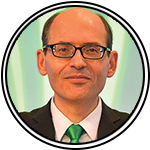AVERILL PARK, N.Y., Feb. 18, 2020 — Michael Greger MD, best known for his advocacy of whole-food, plant-based diets, will join the faculty of The American Meditation Institute at AMI’s 32 credit hour CME conference for physicians and other health care providers, October 20-24, 2020 at the Wyndhurst Manor & Club Resort at Miraval in Lenox, Massachusetts. Entitled The Heart and Science of Yoga this 12th annual event is the nation’s only comprehensive training in Yoga Science as holistic mind/body medicine, and is accredited by the American Medical Association and American Nurses Association to help identify, prevent and relieve physician stress and burnout.
Presenter Michael Greger MD is a graduate of Tufts University School of Medicine, and founding member and Fellow of the American College of Lifestyle Medicine. He is an internationally recognized speaker on nutrition, food safety, and public health issues, and author of “The New York Times” best-selling book, “How Not to Die.”
In his lecture on “How Not to Die: Food as Medicine,” Dr. Greger will present recent scientific evidence that explains the science behind a plant-based diet, the role nutrition plays in chronic disease, how to implement whole food, plant-based meals, and the impact of food production on the environment.
According to Dr. Greger, “You can be in excellent physical shape, with low cholesterol, a healthy body weight and good overall physical fitness—but that doesn’t necessarily mean you’re healthy. The primary reason diseases tend to run in families may be that diets tend to run in families. For example, the fumes produced by frying bacon contain carcinogens called nitrosamines.”
The entire “Heart and Science of Yoga” CME curriculum is dedicated to providing quality, comprehensive and evidence-based education to physicians and other health care providers on Yoga Science as mind/body medicine. In addition to “How Not to Die: Food as Medicine,” topics will include current research on Yoga Science and the mind/body connection, a comprehensive overview and instruction on AMI Meditation, diaphragmatic breathing, mantra science, yoga psychology, epigenetics and lifestyle choice, resiliency, mind function optimization, Ayurveda, easy-gentle yoga, lymph system detoxification, the chakra system as a diagnostic tool, how to reimagine the modern medical culture, and practical ways to integrate Yoga Science into a medical provider’s personal and professional life.
The dedication, enthusiasm, and teaching methodology of the entire AMI faculty create a dynamic and interactive course for their students. Each faculty member is committed to the advancement and training of Yoga Science as holistic mind/body medicine. In addition to Dr. Greger, other presenters will include Leonard Perlmutter, AMI founder and conference director; Sat Bir Singh Khalsa PhD, Director of Research for the Kundalini Research Institute, and Assistant Professor of Medicine at Harvard Medical School; Anthony Santilli MD, board-certified in Pulmonary and Critical Care Medicine; Jesse Ritvo MD, Assistant Medical Director, Inpatient Psychiatry, University of Vermont Health Center; Renee Rodriguez-Goodemote MD, Medical Director of the Saratoga Hospital Community Health Center; Joshua Zamer MD, Medical Director for Addiction Medicine at Saratoga Hospital Community Health Center and Chairman of the Department of Family Practice; Anita Burock-Stotts MD, board certified in Internal Medicine; Janine Pardo MD, board-certified Internist emphasizing Preventive Care, and founder of the Weston Internal Medicine and Wellness Center in Weston, MA; Gustavo Grodnitzky PhD, Chair of the AMI Department of Psychological Education; Kristin Kaelber, MD PhD, board-certified in Internal Medicine and Pediatrics in Cleveland, Ohio; Jenness Cortez Perlmutter, faculty member of The American Meditation Institute, and Lee Albert, NMT, acclaimed neuromuscular therapist and gentle yoga instructor.

